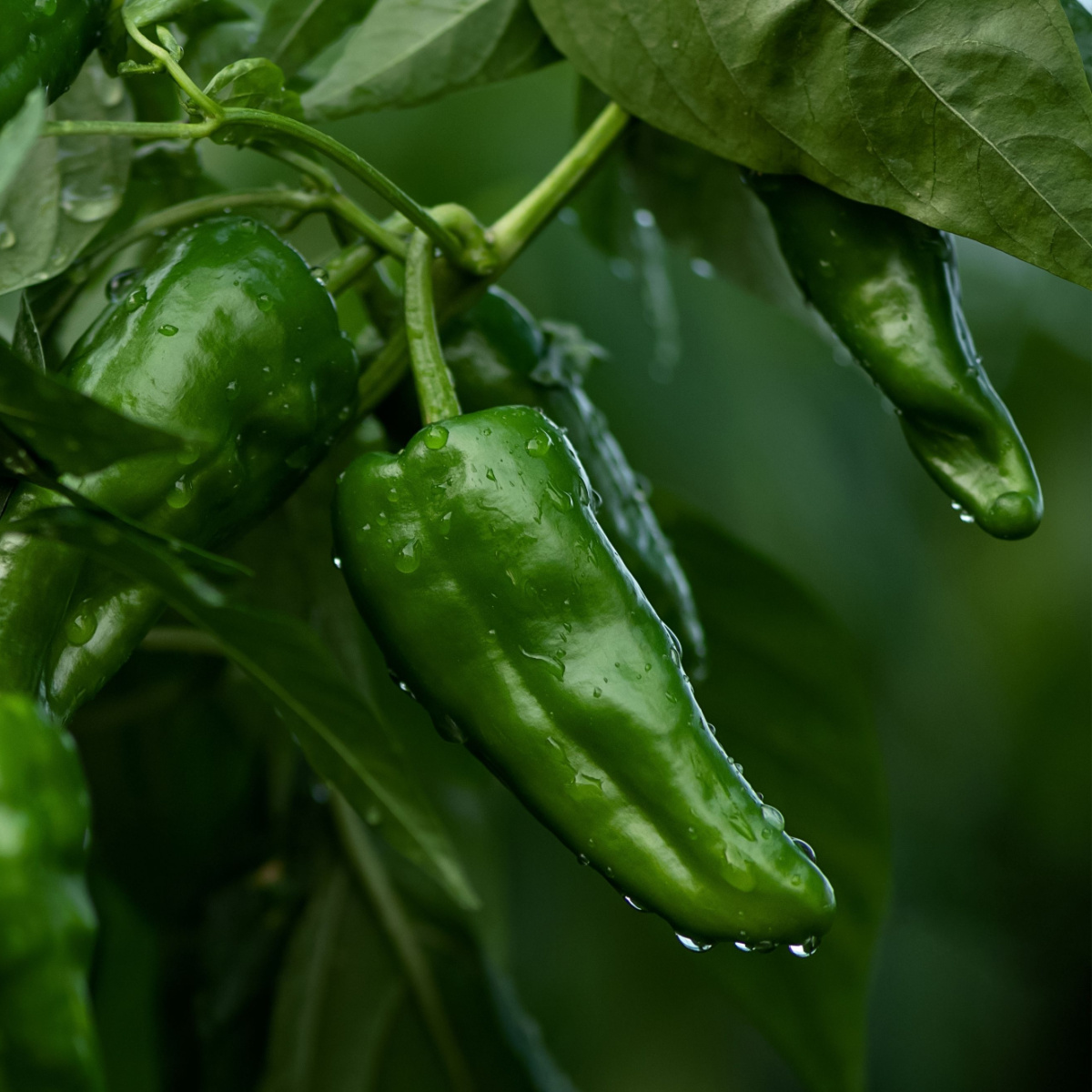Organic Vs. Synthetic Fertilizers: Which Is Best for Nurturing Healthy Pepper Plants?
In the realm of nurturing healthy pepper plants, the choice between artificial and organic fertilizers stands as an essential choice with far-ranging implications. While both options objective to supply vital nutrients to support plant growth, the nuances of their influence on the dirt, plant health and wellness, and the atmosphere stimulate an argument that echoes throughout the gardening community. Understanding the distinctive benefits and possible challenges of each plant food type is essential for pepper growers seeking to optimize their returns while preserving an eco-conscious and lasting approach.
Benefits of Organic Plant Foods
Organic plant foods offer a lasting and environmentally-friendly approach to beneficial pepper plants, offering essential nutrients without the usage of synthetic chemicals. These all-natural fertilizers are acquired from organic resources such as compost, manure, bone dish, and algae, advertising soil health and biodiversity. Unlike artificial fertilizers, natural choices release nutrients slowly, ensuring a constant and balanced supply for pepper plants to thrive.
One substantial advantage of organic plant foods is their capability to improve soil framework and water retention. By improving dirt health and wellness, organic plant foods promote helpful microbial task, which assists in nutrient uptake by pepper plants. Furthermore, natural plant foods minimize the danger of chemical run-off, safeguarding water sources from pollution and guarding the setting.
Furthermore, organic plant foods contribute to lasting dirt fertility by advertising the development of advantageous dirt microorganisms. These microorganisms help break down natural issue, launching nutrients in a type that is quickly obtainable to pepper plants. best fertilizers for peppers. By promoting a healthy dirt environment, natural fertilizers sustain sustainable pepper farming methods that profit both plants and the environment
Drawbacks of Artificial Plant Foods
Synthetic plant foods, as opposed to their natural equivalents, pose various drawbacks when used to nurture pepper plants, influencing both plant health and wellness and environmental sustainability. One significant downside of synthetic fertilizers is their propensity to leach nutrients from the soil rapidly. This rapid leaching can bring about nutrient inequalities in the soil, creating plants to struggle with shortages or poisonings. In addition, synthetic fertilizers can damage beneficial soil organisms, such as earthworms and advantageous microorganisms, interrupting the dirt community's balance.
Additionally, the overuse of synthetic plant foods can contribute to water contamination. Excess fertilizers not taken in by plants can wash away into water bodies, bring about eutrophication, where algae blossoms deplete oxygen levels in the water, damaging water life. Artificial plant foods are generally obtained from non-renewable sources, such as fossil gas, adding to carbon exhausts and environmental deterioration throughout their manufacturing.
Nutrient Absorption Comparison
Efficient nutrient absorption plays an essential function in the overall health and growth of pepper plants. When comparing organic and artificial fertilizers in regards to nutrient absorption, organic fertilizers have the advantage of offering an extra balanced and slow-release source of nutrients (best fertilizers for peppers). Organic plant foods consist of a variety of macro and micronutrients that are not just valuable for the plants yet also promote healthy and balanced soil microbial activity, which aids in nutrient uptake. On the other hand, synthetic plant foods typically offer a fast launch of nutrients, which can result in seeping and runoff, resulting in lower nutrient absorption rates by the plants.
In addition, natural plant foods improve dirt structure and water retention ability, permitting pepper plants to gain access to nutrients more successfully. This enhanced soil quality helps with origin development, enabling much better nutrient absorption. Artificial fertilizers, although originally enhancing plant development because of their high nutrient concentrations, might prevent long-term nutrient absorption by derogatory soil health and wellness over time.
Ecological Impact Factors To Consider

On the various other hand, artificial plant foods, although usually even more focused and right away readily available to plants, can have damaging impacts on the atmosphere otherwise applied appropriately (best fertilizers for peppers). Their production needs high power inputs, resulting in greenhouse gas exhausts and adding to this content environment adjustment. Moreover, the drainage of excess artificial plant foods can pollute water resources, resulting in eutrophication and damaging aquatic communities.
Ideal Fertilizer Practices for Peppers
To attain find more this, it is necessary to adhere to best fertilizer techniques tailored to the specific demands of pepper plants. One important method is to carry out a soil test before applying any plant foods.
One more crucial method is to fertilize pepper plants at the best time. Usually, peppers gain from obtaining fertilizer at planting and after that once more when they begin to flower. Over-fertilizing can lead to vitamins and mineral discrepancies and damage the plants, so it is essential to follow suggested application prices.
Furthermore, picking a balanced plant food with an NPK ratio that fits pepper plants' demands is essential. Organic plant foods, such as garden compost or manure, can be exceptional choices as they launch nutrients gradually and improve soil framework gradually. Artificial plant foods can provide a quick nutrient increase when required. Inevitably, incorporating synthetic and organic fertilizers sensibly can assist nurture healthy pepper plants while decreasing environmental effect.
Conclusion

Organic plant foods provide a sustainable and environmentally-friendly approach to beneficial pepper plants, offering crucial nutrients without the use of synthetic chemicals. Unlike artificial plant foods, organic choices launch nutrients gradually, guaranteeing a consistent and well balanced supply for pepper plants to prosper.
Artificial fertilizers, in contrast to their organic counterparts, posture numerous disadvantages when utilized to nurture pepper plants, impacting both plant health and wellness and ecological sustainability. When contrasting organic and synthetic fertilizers in terms of nutrient absorption, organic plant foods have the benefit of giving a more balanced and slow-release source of nutrients.Moreover, natural plant foods enhance soil framework and water retention ability, allowing pepper plants to gain access to nutrients extra successfully.
Comments on “Best Fertilizers for Peppers: Increase Development and Flavor Naturally”